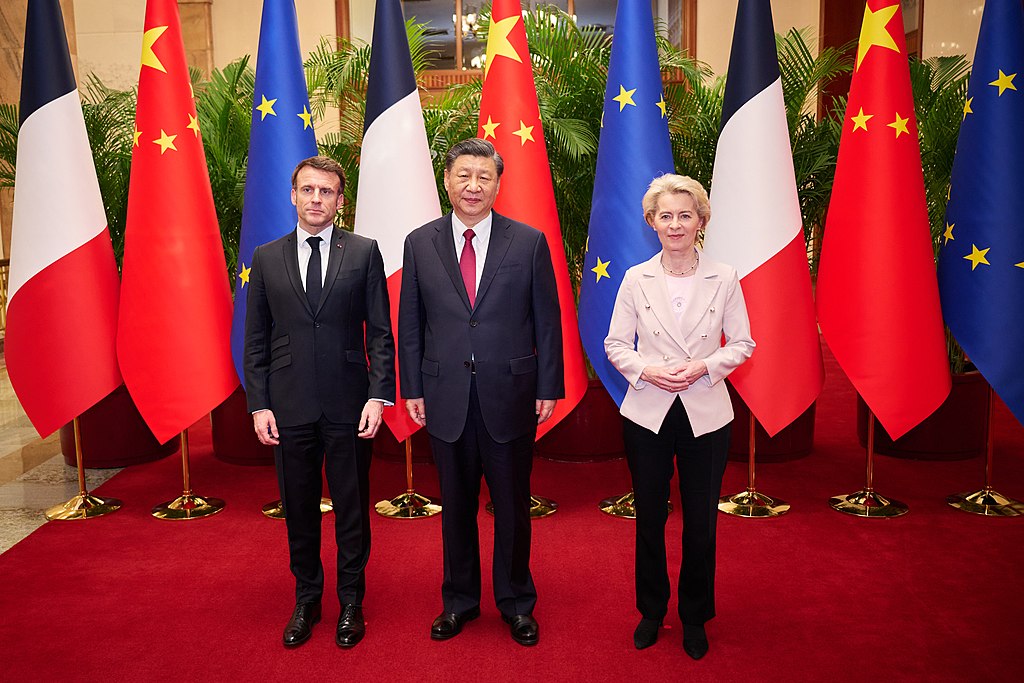European Dispatch: Wavering commitment to the United States.
By Jacob Sagers | June 15, 2023

Emmanuel Macron and Ursula von der Leyen meeting with Xi Jinping in April 2023
Geopolitical codes are the way a country positions themselves within the global community. This includes identifying allies, enemies, and justifying past and present actions to their public. NATO’s establishment after World War Two, and prominence through the Cold war and to today, has maintained close American-European relations in most foreign affairs. However, not all European states and leaders reaffirm the status quo. For example, recent remarks from French President Emmanuel Macron’s visit to Beijing in April, including: “…it would be “a trap for Europe” to get caught up in crises “that are not ours” while referencing Taiwan signal a drasticshift in French geopolitical codes. France is not alone, with German chancellor Olaf Scholz stating China is, “a strategic and global partner.” The two largest EU countries hold immense influence throughout Europe and signal a major change in geopolitical codes if the US and China continue to position themselves for conflict.
These sentiments do not necessarily translate into positive views, however. Only 31% and 33% of French and German businessman view China favorably, while over 41% and 50% view them as a rival. National identity, or the way people see themselves as a member of a nation, can help us understand these similar opinions. Growing regional identity since the formation of the European Union (the Euro, etc.) has developed a more profound sense of what it means to be European. Increasingly similar views among EU member states may allow an easier transition to different European and US geopolitical codes and an apathetic economic partnership with China. The question then becomes, if European states stayed neutral in an American clash with China, how would the American public respond, and would the United States leave Europe to its own fate?
Picture Credit: Photo distributed under EU Copyright Law by the European Commission. Source

